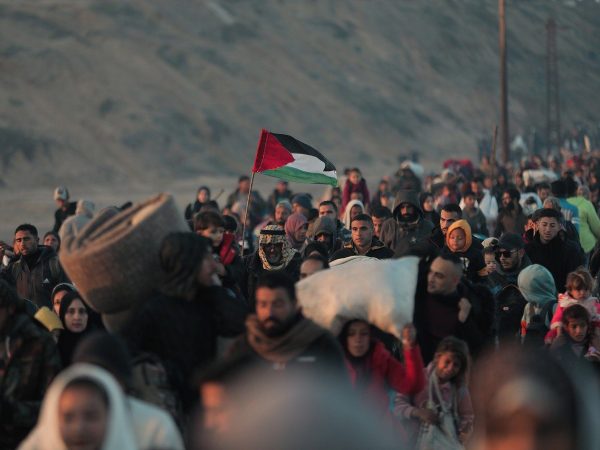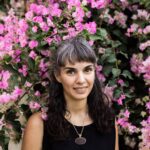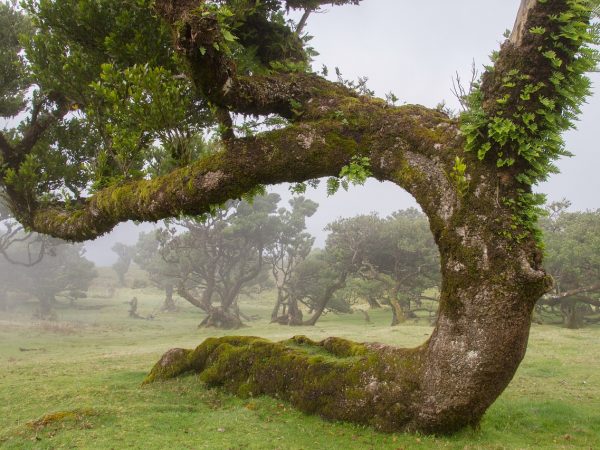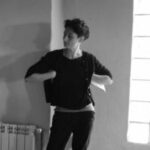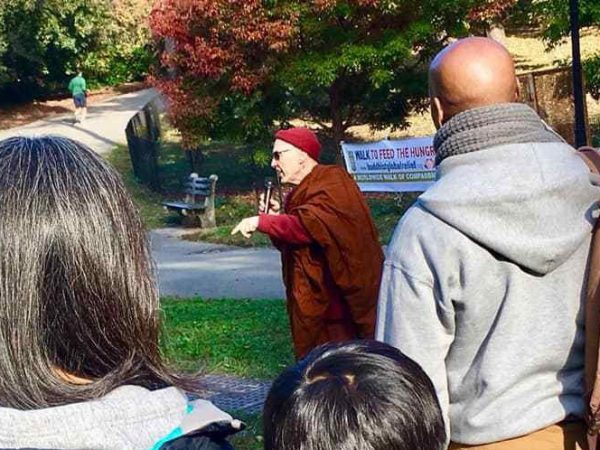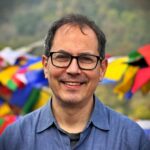Nikayla: I usually like to begin acknowledging the most recent difficult or chaotic event to give you an opening to speak to the collective moment — but there are simply too many things this June! This is such an extraordinary and significant time to be alive.
Mohsen: I really feel like we are between two choices: love and fear. It’s either the path of healing or the path of destruction, and either choice directs us into a cycle of cause and effect. My hope is that if we choose this path of healing, as individuals and communities, we will eventually heal the traumas of the world and lessen the overall suffering of everyone. If we go down the path of destruction, we just delay the healing because at some point, the healing must take place. It’s better to get started on the healing sooner rather than later.
This time is probably the most serious time in the history of our humanity for the choice between love and fear. The interconnectedness of consciousness, made possible by technology, means that the choice is made at the global level.
Right now I feel that more than ever, there is a global collective awareness that sees things for what they actually are, sees right into the root of our problems, and sees it with a powerful energy of love. But there is another kind of awareness, with the energy of fear, that sees the lies as truth and leads us towards something very difficult and dangerous.
Nikayla: I think that sometimes, one isn’t even aware a choice can be made in how they view the world. How do you begin to even arrive at that awareness?
Mohsen: When you let go of the truth, it will appear so clean and simple.
My understanding is that we have two roots for all emotions: love and fear. I would say most negative emotions come from a source of fear, and positive emotions come from a source of love. Generally speaking, when we are controlled by fear, and experience negative emotions, we don’t see that we have too many choices.
This time is probably the most serious time in the history of our humanity for the choice between love and fear.
When we feel triggered at the maximum level, we may not be able to see anything except what is related to survival. The power of Buddhist meditation is that it allows us to see what is at the source of our emotions, and once we know, we can regulate ourselves. We can pay attention to our inner world and know if it’s at peace or disrupted. If fear is present in us, our inner world is clouded, and most likely, we aren’t making good decisions. We have the power to see our state of mind, how it influences our actions, and make a different choice.
Nikayla: I hear Buddhist practice as opening us up to a greater awareness of our own inherent power.
Mohsen: Yes, and it’s all expressed in the stages of mindfulness practice. Without mindfulness, carrying your traumas, running around in an activated state, with very little, if any, awareness about what is happening within. The moment you become aware you are triggered, that’s mindfulness, and you become aware of the body. Then, you begin to examine where this trigger comes from, feeling it in the body, and it becomes the object of meditation. The noise quiets down, and the source of the trigger becomes clearer to you.
I would also say that empathy is another power cultivated by the Dharma. Empathy is very similar to love. Before you can truly empathize with someone, you have to empathize with yourself. In situations of guilt, pain, attachment, or whatever it may be, there has to be that empathy for yourself if you are to truly have empathy for someone else in that situation. To feel someone else’s pain and suffering, is to feel it in yourself and have love for it. Empathy is about seeing yourself in another person, and seeing it all with kindness.
Once that empathic connection is established, you are able to begin to see the root of the issues. But again, it begins with seeing the root of the issue within yourself.
Many people fail nowadays because we have wars, conflict, and as a result, we may become self-centered. We’re much less able to hold the balance between empathizing with ourselves and empathizing with the other, but we cannot empathize with the other without being able to empathize with the self.
Nikayla: Tell me more about the impact of practicing self-empathy on the collective.
Mohsen: Well you know the Buddhist concept of interdependence, dependent origination. Most of us view the world in duality, this and that, me and you, us and them. The mind sees separation, but the insight of interdependence reveals there is no separation. My joy is your joy, your pain is my pain. We are not actually separate as humans, and humans aren’t separate from the rest of the world.
In order to be able to bring peace to this life, which is the relief of suffering, we have to heal ourselves. When we heal ourselves, we’re able to show up in a better way with others. We’re able to connect with more love, and so more positive emotions. That has a great impact on the world, because the benefits of my healing are yours too. The moment I am healed, I am able to heal others.
Healing the self and healing the world are not separate. They are interconnected.
The personal translation of this could be: I was born in a refugee camp. I’ve gone through much suffering. I lost my best friend, my uncle, and so many of my beloved ones. My cousins have been shot and treated in inhumane ways. I’ve been shot. I cannot return home. The natural reaction is to reject the Israelis or impact them with a similar level of trauma. But that would not be healing, for me or for them. That would not bring us peace.
So I begin to empathize with the Israelis who have done this to me. I ask, why did they do this? I try to understand their pain by understanding my own. My healing is part of their healing. I want to help them empathize with me. This intentional act of empathy fuels the healing cycle instead of the destructive cycle.
Nikayla: I’m really hearing you speak to the core of the principled nonviolence practice.
Mohsen: Nonviolence is at the core of Buddhist practice, and nonviolence has three major principles in my understanding.
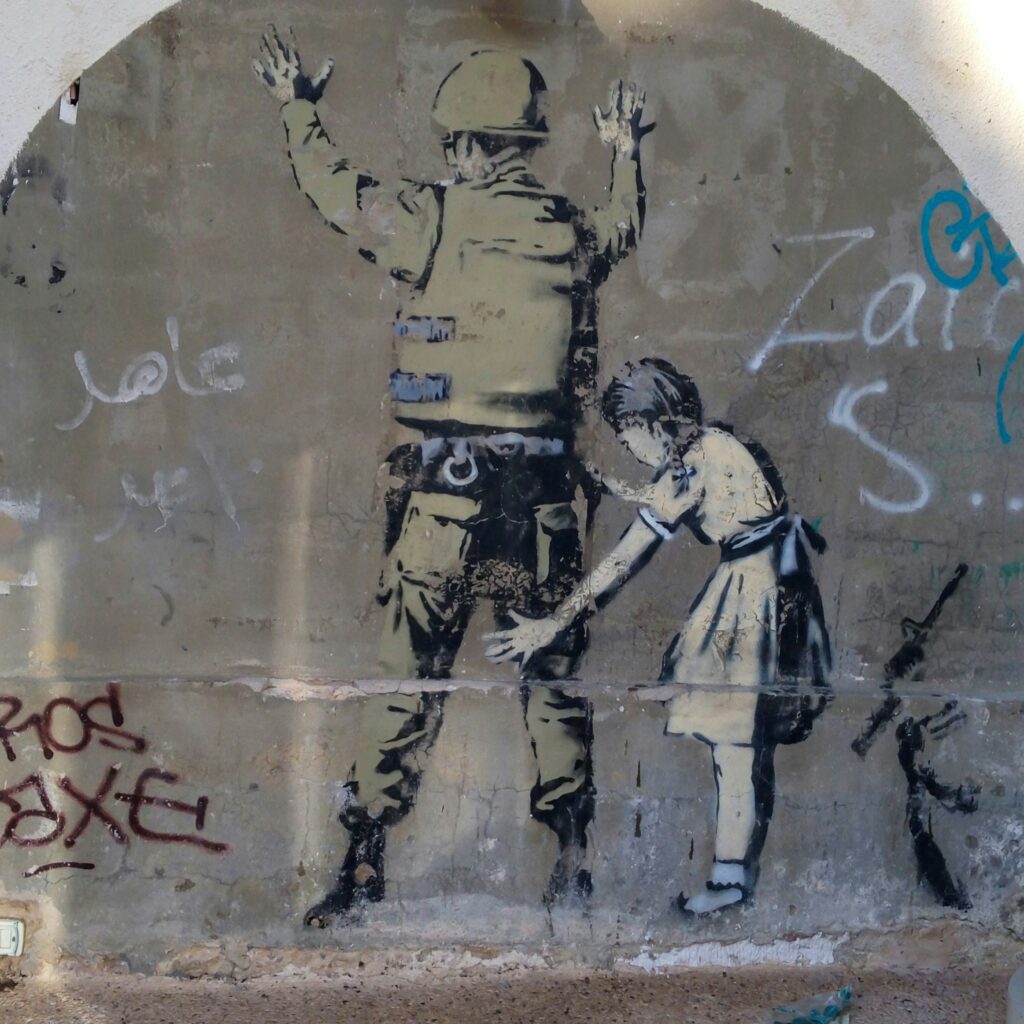
The first one is empathy, just like we’ve been speaking about. If you have the capacity to empathize, you no longer want to inflict or project violence onto people. Instead, you become curious and committed to healing.
The second one core principle of nonviolence is alleviating suffering. If you act violently, you are actually increasing suffering. I’m not sure what Buddhism says about this, but I feel that there are limits to nonviolence in situations of self-defense. If someone is in imminent danger and must defend their life, violence could be understandable. But even when someone must defend their life, they do not do it out of hate or anger, they do it out of love. They have compassion while they are defending themselves. They understand that this person who is trying to harm or take my life is still part of me, and I am stopping the harm from happening to me and to them.
The third one is attachment. When people have non-attachment, even if they are under severe conditions of oppression, they can feel the pain without extreme suffering. This allows us to have peace of mind, to be in heaven, even while experiencing pain. Even if I am in prison, or I am witnessing death and bloodshed, I can have peace of mind. Peace of mind means: I can be in heaven.
This does not mean I am blind to the horrible things that are happening, or that I do not take action. It’s about not allowing the pain to become suffering. No matter how severe the pain, the suffering is always more severe. I act out of love, connectedness, and the desire for healing, which relieves the suffering in this world.
Nikayla: You very much embody this insight. How did you begin on the Buddhist path?
Mohsen: I was once married to a Buddhist woman. We were married in Palestine, lived there together for a year and a half, and then we moved to America. We were young, and I did not know much about Buddhism. I was not secure enough in my own being to develop a curiosity and learn from her in the time we were together.
I remember watching her become triggered and feel difficult emotions. She would go into the bedroom, and then emerge calm with an air of everything is good. I was like, “what kind of drug is she taking?” She was meditating.
After the divorce, I found myself alone, and with so much physical and emotional safety. The pain, trauma, and memories of the past started to surface and come on very strongly. I met a spiritual mentor, and we would meditate together. I observed how much meditation helped my ex-wife. I decided to give it a chance.
So I just sat with my mentor. I started to see and feel the difference it made in my life. It supported me to heal part of my pain and trauma. My curiosity about Buddhism developed from there. I started attending meditation gatherings and hanging out with Buddhists. I read the Jack Kornfield book, The Wise Heart. I felt like I had an intuitive grasp on Buddhism, and it settled right into my heart.
When I started at Columbia University, I found living in the city very difficult. I did not like apartments or the traffic or the crowds. I was very triggered by city life. I realized I needed the support of a Buddhist meditation community, so I found Columbia University Buddhist Association. Our weekly Thursday meetings became my sanctuary.
After the first year, the other students nominated me to lead the organization. I said, “Hey what, I’m not a Buddhist.” They said, “Well, you may not be a Buddhist, but we see you as a person who has a deep understanding of the practice and would be a great person to lead the organization.” So of course I say, “It’s an honor.” They really trusted me and I accepted out of a sense of duty.
The amazing thing about Buddhism is that you do not need to be a Buddhist to practice Buddhism. I wasn’t! You just sit. This is articulated in the teaching on skillful means. The Dharma can be delivered to anyone, no matter what they believe or don’t believe. That’s why you find so many Buddhists around the world still practicing in their home religion. There are Buddhist Muslims, Buddhist Jews, Buddhist Christians, and so on. Buddhism allows for that flexibility. The Dharma does not have one shape.
I’ve really come to appreciate Buddhism as a magnificent ancient philosophy that helps us have a better understanding of who we are and how we heal.
I also remember watching this cartoon, Ikkyū-san, as a child in the refugee camp. I did not know what Buddhism was at the time, but I would watch this kid sit and meditate. I was so impressed by this character. His father was killed, and his mother was so afraid that he would be killed too, she sent him to a monastery. Every time he faced a serious or difficult issue, he would meditate and chant. A few years after I first watched that show, I also had to live without my mother. I lived his story to a certain extent, and this show helped me stay positive. It had such an impact on my little inner spirit, even if at the time I was not aware. So maybe my Buddhist journey began as a child watching Ikkyū-san.
I think at its core, Buddhism is related to justice. If your focus is alleviating suffering, so much of the world’s suffering stems from injustice.
Nikayla: I feel like my Buddhist journey probably began as a kid watching Avatar: The Last Airbender! The simple teachings found in the Dharma are so easily translated, understandable to anyone at any age. It’s such simple wisdom, but it has such a powerful impact.
Mohsen: Indeed. This is a moment of significant pain. We cannot run or hide from it. I believe the teachings of the Buddha are more important now than ever.
Some people believe Buddhism does not advocate for justice or express an attachment to certain things. I don’t see it this way at all. I think at its core, Buddhism is related to justice. If your focus is alleviating suffering, so much of the world’s suffering stems from injustice. We have to speak out about injustice from a place of love, empathy, and compassion, and do practical actions to alleviate injustice because this is also a part of our path.
Nikayla: At times I feel the Buddhist path is at odds with much of the traditional kind of activism. The holistic, philosophical nonviolence of Buddhism sometimes doesn’t jam so well with the strictly tactical nonviolence and culture of movements.
Mohsen: Sometimes people do believe that nonviolence is just about In movement spaces, there are times when people bring anger, frustration, and burning sense of injustice. They bring their unprocessed negative emotions and believe that nonviolence is just about not being physically violent or not shouting violent slogans.
The deeper nonviolence is about acting with firmness, yes, but also holding love and compassion in all your actions. This type of nonviolence is very powerful, and it requires processing those negative emotions into positive and creative energy. When you encounter someone who is acting from a place of love and compassion, it’s much more difficult to remain self-protective and shut down. There is much more teaching on this that must be done.
Nikayla: How does that teaching begin?
Mohsen: I think it could begin by more spiritual people, the monks and nuns, teachers and masters, to come down to the streets. I have studied many other religions, and Buddhists have the best understanding of emotional regulation, empathy, forgiveness, alleviating suffering, and so on. The movement can learn so much from these amazing teachings.
But I must say, I have a sense of disappointment because they have not spoken out or came to help people on the ground. People have to go to the monasteries or temples or retreat centers to learn. This was not how the Buddha acted or taught.
There are so many stories of the Buddha going out into the world. He left the palace. He threw himself in front of baby tigers. He went down to the river and met Sajita. He knocked on the doors of people, interacted with so many different beings, and he met all of them as they were.
Nowadays, the pain is so significant and felt by everyone. I’m disappointed so many Buddhists choose to be distant from it. There are some, like Bhikkhu Bodhi, who speak up but that’s not the majority. The Dalai Lama has not spoken up about the injustices in Palestine. They are the only religious group that is impartial. Christians, Jews, and Muslims are all involved. Buddhism is the most major religion that is not involved, despite maybe being the best religion for peacemaking.
I am very grateful for the teachings, but disappointed in the Buddhist response to Palestinian suffering.
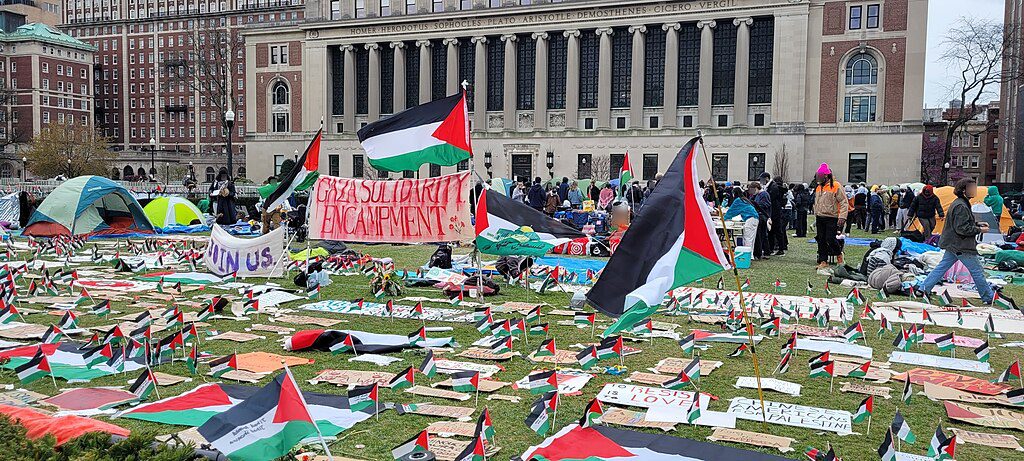
Three years ago, before the war broke out, we held a Vesak celebration at Columbia. We invited so many Buddhist groups to celebrate with us. We had monks, nuns, masters, and teachers all in attendance. I said, “It’s time for you to come down from your monasteries, we need you on the ground.” I still hold that as my truth. They must come down and be involved with people.
Nikayla: What does the Western Buddhist community have to learn from the movement?
Mohsen: To see injustice, feel it, and understand it to be a serious danger for all of humanity. That there are people out there who refuse to surrender to the forces trying to do violence and destroy our world, it’s a worthy struggle, and that they could use some help from the Buddhists.
There is such a disconnection, a gap, with the Buddhist masters between making a spiritual commitment to alleviating suffering and actually doing it.
Nikayla: Why do you think in Buddhist communities there is this unwillingness to engage?
Mohsen: I think that it could be a hyperfocus on their monastery or center, mastering their Buddhist education, their own peace, and so on. I think it is also that a number of great masters and teachers are avoidant to conflict. They don’t want to touch or be associated with any kind of conflict.
Thích Quảng Đức died by self-immolation. He was protesting the unjust treatment of the Buddhist communities by the Vietnamese government. He showed that “I can be in pain, but I will not suffer. I can stand up for truth. I can show you that nothing can shake me.” He stayed in the lotus position and meditated while he burned. His image lives forever. His monastic brothers set him on fire, and they did it out of compassion. Why is this teaching not present today?
Nikayla: Who are other nonviolent leaders that have had an impact on you?
Mohsen: Well of course, I think of Gandhi and Martin Luther King, Jr. style of nonviolent leadership as an example. They were both deeply grounded in their own spirituality, and believed that truth has its own power. If you just hold on to truth, justice will come.
Nikayla: When I think about them, I can’t help but think that nonviolent movements have dwindled in their power over the last 100 years. In this conversation, you’ve spoken with such optimism about the power and potential of nonviolence. I’m wondering if there is a vision of the future you’d like to share?
Mohsen: In Palestine, more than 55,000 people have been killed by genocide. Most of them are women and children. More than 200,000 people have been injured. This number grows everyday. Every means to life has been destroyed. In the West Bank, the apartheid continues. The refugee camps are being destroyed. The systemic oppression, discrimination, and killing continues. I see this issue as so much bigger than Palestine. It’s a shouting, a crying out, to end this and begin to heal for all of humanity.
But where does it start? In today’s world, we are much more interconnected. There is more potential for us to come together in creative, nonviolent ways. In many ways, it may be easier than in Gandhi’s times, and we can do it at a higher, universal level. In today’s world, we have the United Nations. The human rights outlined by the UN are very, very good. Yes, they can be improved, but the real issue is the double-standard and lack of enforcement. All people, all nations, must have and abide by human rights.
Enforcement can be done in a nonviolent way. Like we can impose sanctions, divest, and boycott against entities who are violating human rights and creating violence. We can do it out of love and compassion, not anger, isolation, or by labeling someone or something as evil. We can make a very powerful stand, without using weapons at all. We can make it about healing.
So I believe it starts with the UN and restoring international human rights law, and then the process needs to be reformed. The UN security council has five permanent members: China, France, Russia, the UK, and the US. Each has the power to single-handedly veto any resolution and allow serious bloodshed, violence, and injustice to continue on. Maybe we need regional vetoes, a group of counties rather than just five rogue countries dictating how the world should work, or if a resolution is passed through the General Assembly, there is some way for it to be enforced.
I am very grateful for the teachings, but disappointed in the Buddhist response to Palestinian suffering.
And I think this requires the spiritual and the intellectual to come together and build with the grassroots aligned on a vision of love and compassion. We need a worldwide movement working towards this goal. We are on the verge of a nuclear war and a much wider war. We need to see and begin to act on the other path of harmony and peace.
Nikayla: Can you speak more about the relationship between the spiritual, the intellectual, and the grassroots?
Mohsen: For at least the last fifty years, in the time of the modern university system, around the world the spiritual and the intellectual have been separated. There is wisdom and spirituality related to the innate human nature, our goodness, emotional regulation, forgiveness, interdependence, and so on. Without that, intellectualism becomes a long, game-like debate without a spirit.
Intellectuals have their influence on policy, technology, history, and on. But the spiritual have their influence on communities that are not integrated into the education system. The majority of the people around the world are spiritual or religious in one way or another. If you want to move the masses, you need the spiritual people. They can help lead masses to be centered, manifest peace, harmony, coexistence, and practice compassion.
When we bring the spiritual and intellectual together, we get the mind and soul together in balance.
Nikayla: I take it you feel like you’re at the place where these two worlds meet.
Mohsen: Yes, I’m connected to the intellectuals at the universities. I also grew up Muslim, I’m part of the Ontario Universalist Church, and I’m a practicing Buddhist. I’ve learned the doctrine of love in all these places. I spent a lot of time convincing the intellectual and spiritual that they need each other.
I really enjoyed watching my spiritual and intellectual communities come together and speak up around my ICE detention. I was like, “Oh my God, it really took me being detained for you to talk to each other?”
Nikayla: What would you like to leave us with?
Mohsen: We have the choice right now, on so many levels, between love and fear. Equality and respect or supremacy and harm. This is the time for us to choose. We can’t choose alone. We have to choose together as a global humanity, with love and compassion in our hearts.


